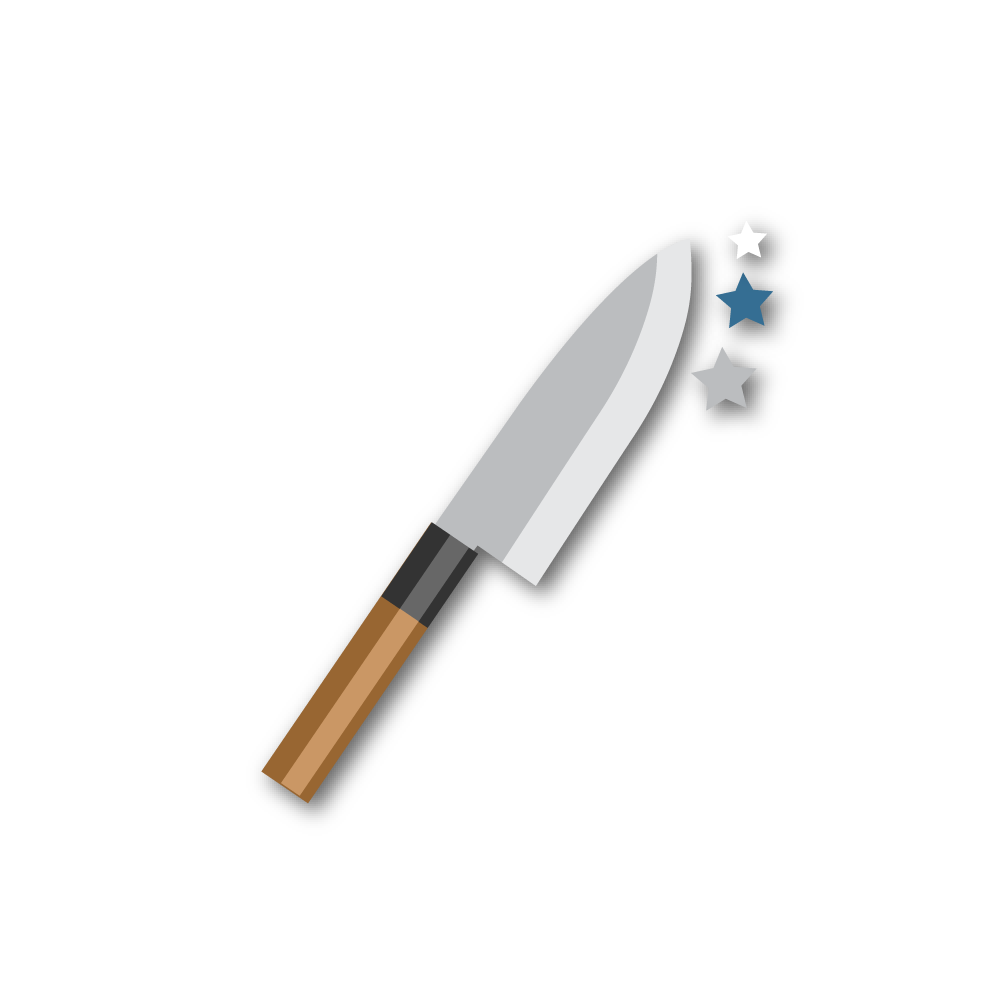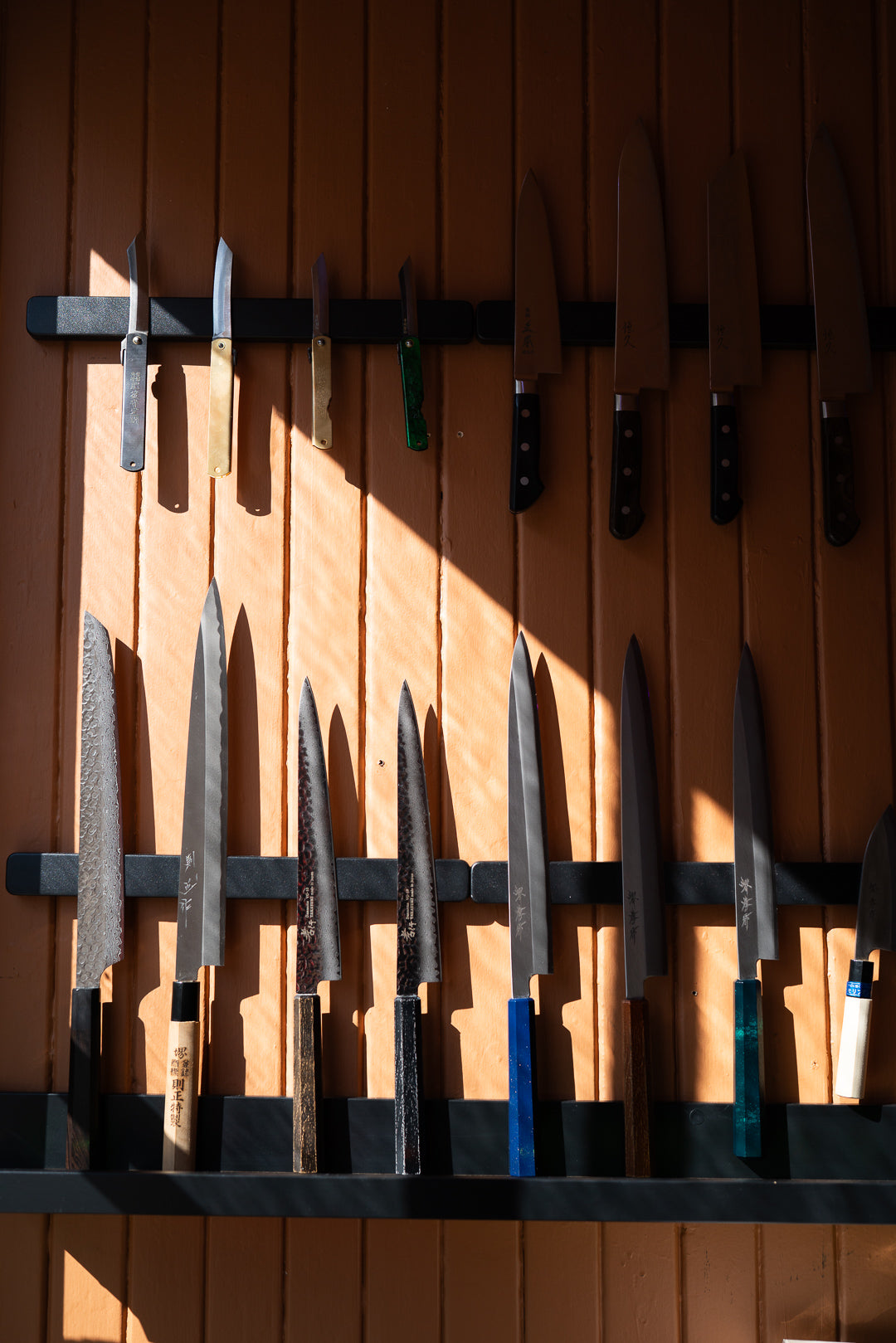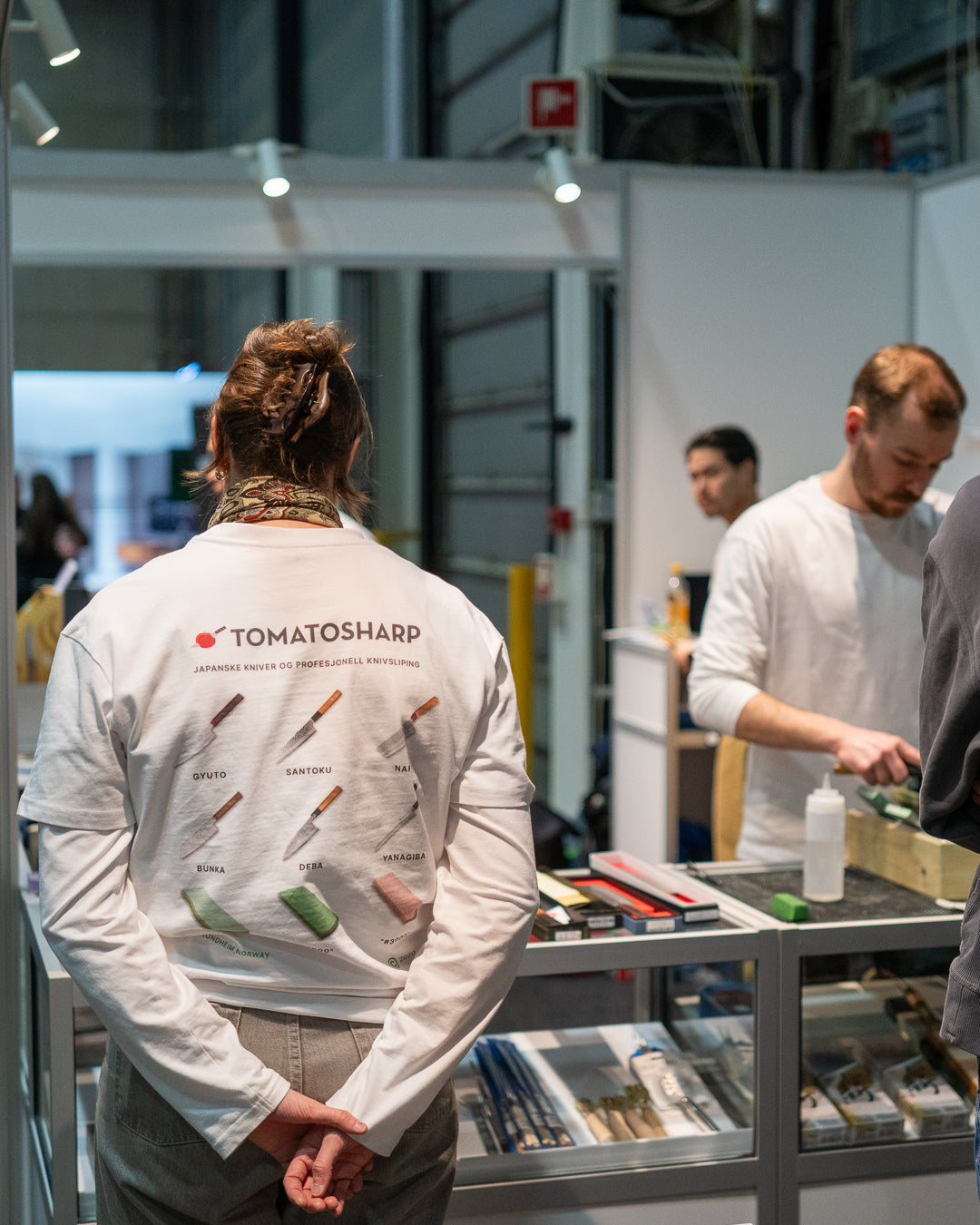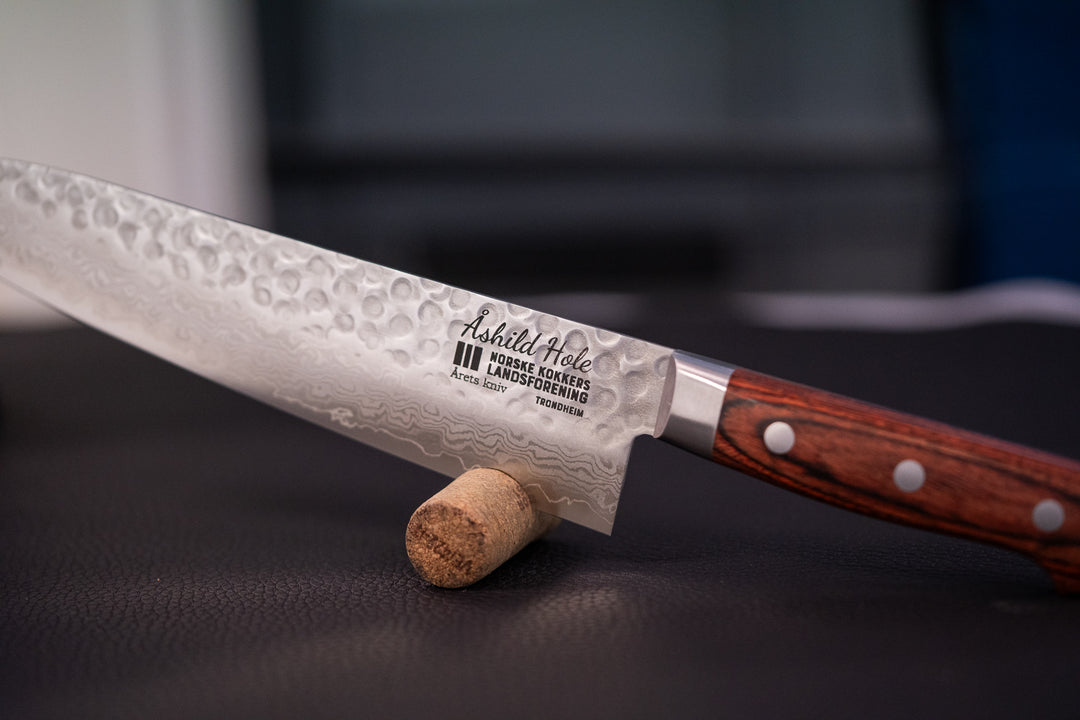HATSUKOKORO Kumokage Kurouchi Damascus Santoku with Saya 180mm
- Handmade saya
- In stock, ready to ship
- Backordered, shipping soon
Shop nå. Betal med Klarna.

- Levering 1-3 virkedager
- Fri frakt over 1000kr
- 30 dagers åpent kjøp
| Knivtype | Santoku |
| Bladlengde | 180 mm |
| Høyre-/venstrehendt | For both |
| Slipefase | 50/50 |
| Håndtak | Teak with buffalo horn |
| Hardhet | 62-63 HRC |
| Ståltype | Karbonstål |
| Stål | Blue #2 (Aogami #2) |
HATSUKOKORO Kumokage Kurouchi Damascus Santoku is a knife for those who want a knife that is suitable for doing everything from small to large tasks. The knife is forged in carbon steel, specifically Blue Steel 2 which provides an unparalleled durability of sharpness. Over time, the carbon steel will oxidize and get a protective "patina". This makes the knife unique with use and turns slightly brown or blue, depending on what you cut.
Custom-made wooden sheath
A good friend of ours, Einar Indergård, has made a saya - a traditional Japanese wooden sheath for the knife. The solid teak scabbard is carefully crafted by hand and polished with wax to form a protective layer against moisture, and matches the wooden handle, which is also made of teak and buffalo horn.
This makes the knife a unique piece of craftsmanship that will be with you in the kitchen for many years.
Santoku er den perfekte allroundkniven innenfor japanske kokkekniver, og navnet oversettes til tre bruksområder. Disse tre bruksområdene er kjøtt, fisk og grønnsaker, og den kan med andre ord brukes til det aller meste på kjøkkenet.
Bladet til en santoku er litt bredere enn en gyuto eller en vestlig kokkekniv, og gir derfor god plass til f.eks. større grønnsaker med litt høyde. Den har en karakteristisk tupp som gir eggen en større kontaktflate. Dette gjør at man kan kutte effektivt med en teknikk som kalles "push cut".
Tilbyr en balanse mellom skarphet, holdbarhet og slipevennlighet. Allsidig og populær blant profesjonelle kokker. Rengjør og tørk umiddelbart etter bruk; unngå langvarig eksponering for fuktighet. Utvikler en beskyttende patina over tid som reduserer risikoen for rust og gir bladet et unikt preg.
Bruk
Japanske kniver er vanligvis tynnere og mer delikate enn vestlige kniver, så de er ikke egnet for å kutte gjennom bein, frosne matvarer eller harde gjenstander. Bruk et mykere skjærebrett laget av tre, plast eller gummi og skjær med en rullende bevegelse i stedet for å presse ned med kraft.
Vask og oppbevaring
Vask kniven for hånd med mild såpe og varmt vann umiddelbart etter bruk. Tørk kniven med en myk klut eller et kjøkkenhåndkle for å forhindre rust. Oppbevar kniven på en sikker og tørr plass når den ikke er i bruk. Bruk gjerne en knivblokk, magnetisk knivholder eller knivslirer for å forhindre skader på eggen. Les mer
Vedlikehold
Vi anbefaler å bruke en keramisk brynestav i kombinasjon med en lærstropp for å vedlikeholde / skjerpe eggen. Dette gjør at kniven holder seg skarp mye lenger før den må slipes på stein. Ved sliping anbefaler vi våtslipesteiner for å få best resultat, samtidig som at man fjerner minimalt med materiale.



























